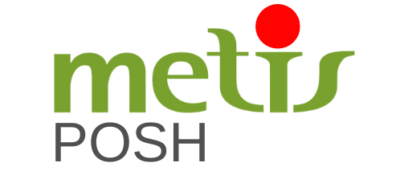The COVID 19 pandemic has changed the way of work across the globe.
Many of us in India are still grappling with the new arrangement of Work from Home. Most managements begin to see its benefits of saving time and cost to the organization.
So, is it here to last?
We never know, it might become more common and an acceptable norm among many organizations across the country.
We can confidently say WFH is the new emerging “workplace”.
As WFH has had a strong impact in the way of work, it’s worth having a closer look at its ramifications with respect to the POSH Act.
For that we need to primarily understand two aspects:
“Workplace” & “The way of work”
According to the Prevention Of sexual harassment Act, “workplace” includes “A dwelling place or a house” making it clear that the Act applies to everybody who is working from their own home, leased/rented home, a company leased home, or any other form of accommodation. From wherever work or conduct official business, it becomes their “workplace”.
Unlike others, this workplace has its challenges with regards to stipulated working hours and of course, constant overlapping of professional and personal time.
Undoubtedly, not everyone can work from home. For those who can, the Way of Work will change significantly impacting all areas of work.
From the POSH perspective, especially in today’s situation, it is important to look at facts and circumstances in each case to determine whether an alleged incident took place in a workplace or not. Thus, be aware that posting any unwelcome sexual comments or any such acts even while working from home is considered a ‘workplace incident’ and liable to disciplinary action.
Let’s take a peek into some pointers while working from home with respect to The Prevention of Sexual Harassment Act. in this context.
It is important to restrain from:
- Sending personal and inappropriate messages
- Sexual jokes/forwards/videos/drawings/pics
- Sexual descriptions over telephone or video conferencing
- Continuous idle chatter over phone which is of sexual nature
- Unwelcome remarks while communicating
- Digital stalking (stalking in all forms of social media)
- Lewd gossips on colleagues about sexual affairs/sexual orientation/preferences/virginity
- Vulgar humour or language while communicating
- Relentless proposals for physical intimacy
- Encroaching personal space by asking inappropriate questions
- Passing Sexual comments on weight, body shape, size, or figure
This list doesn’t end here. It is certainly the Managements’ priority and duty to ensure safe and secure workplaces by implementing the following:
- know that they are subject to same rules on prevention of sexual harassment in virtual world as they are in real world.
- take reasonable steps to prevent and respond to the risk of sexual harassment.
- Conduct POSH e-learning and POSH awareness sessions on POSH
- Share POSH posters with employees on responsible usage of office resources during lock down.
- provide clear guidance to employees on how to use technology and social media responsibly.
Let’s create a safer workplace, even at home.

